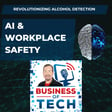
The Irony of AI: Why Less Knowledge Leads to Greater Adoption, Atera's Autopilot & Agentic AI
A recent study published in the Journal of Marketing reveals a fascinating trend: individuals with lower knowledge of artificial intelligence (AI) are more likely to embrace it in their daily lives. This phenomenon, termed the "lower literacy higher receptivity link," suggests that people from nations with lower average AI literacy are generally more open to adopting AI technologies. The study, which analyzed data from 27 countries, indicates that even among U.S. undergraduate students, those with limited understanding of AI are more inclined to use it for academic tasks. Interestingly, while these individuals may perceive AI as less capable or ethical, their sense of wonder about the technology drives their willingness to engage with it.
The podcast also highlights a flurry of recent AI model releases, including OpenAI's O3 Mini, which offers faster responses at a lower cost while maintaining performance in mathematics and science. Google has introduced its Gemini 2.0 Pro Experimental model, boasting improved factual accuracy and performance for coding tasks, although it remains in early preview. Microsoft has made its ThinkDeeper reasoning model available for free to Copilot users, aiming to enhance output accuracy. Meanwhile, Mistral AI has launched its Small3 model, which is optimized for quick responses and has shown impressive accuracy in benchmark tests. These developments indicate a rapid evolution in AI capabilities, with implications for managed service providers.
The discussion extends to the concept of agentic AI, with a report from UiPath revealing that 90% of U.S. IT executives believe their business processes could benefit from this technology. Atera's Autopilot feature, which autonomously handles end-user service requests, is already operational and has the potential to significantly reduce support wait times. However, concerns about IT security remain prevalent, with over half of the surveyed executives citing it as a primary worry. The podcast emphasizes the importance of distinguishing between basic workflow automation and true agentic AI, as the latter could represent a major shift in IT support models.
In addition to AI advancements, the podcast covers notable product announcements from major companies. Adobe has enhanced its Acrobat AI Assistant to help users better understand contracts, while Microsoft has improved its AI-powered Windows Search for Copilot Plus PCs. Intel, on the other hand, has decided not to bring its Falcon Shores AI chip to market, opting instead for a system-level solution called Jaguar Shores. These developments reflect the ongoing challenges and opportunities in the tech landscape, underscoring the need for businesses to adapt and innovate in response to rapidly changing technologies.
Four things to know today
00:00 The Irony: The Less You Know About AI, the More You Love It
03:18 AI Models Are Coming Fast—But Should We Even Be Keeping Score Anymore?
06:39 AI That Works While You Sleep? Atera and N-able Take IT Automation to the Next Level
09:36 Intel Rethinks AI Chips, Adobe Rethinks Contracts, and Microsoft Rethinks Search
Supported by: https://www.huntress.com/mspradio/
All our Sponsors: https://businessof.tech/sponsors/
Do you want the



















